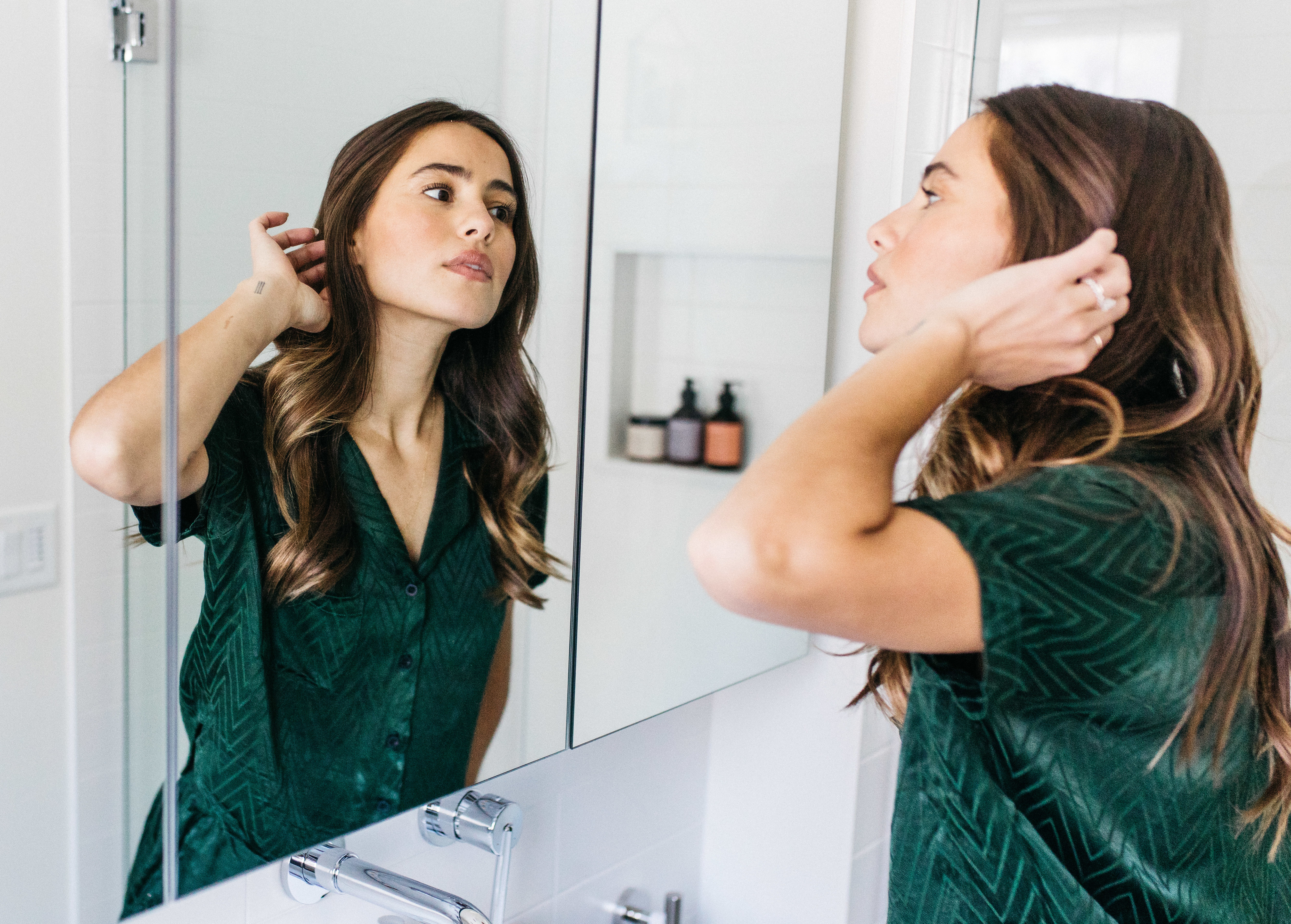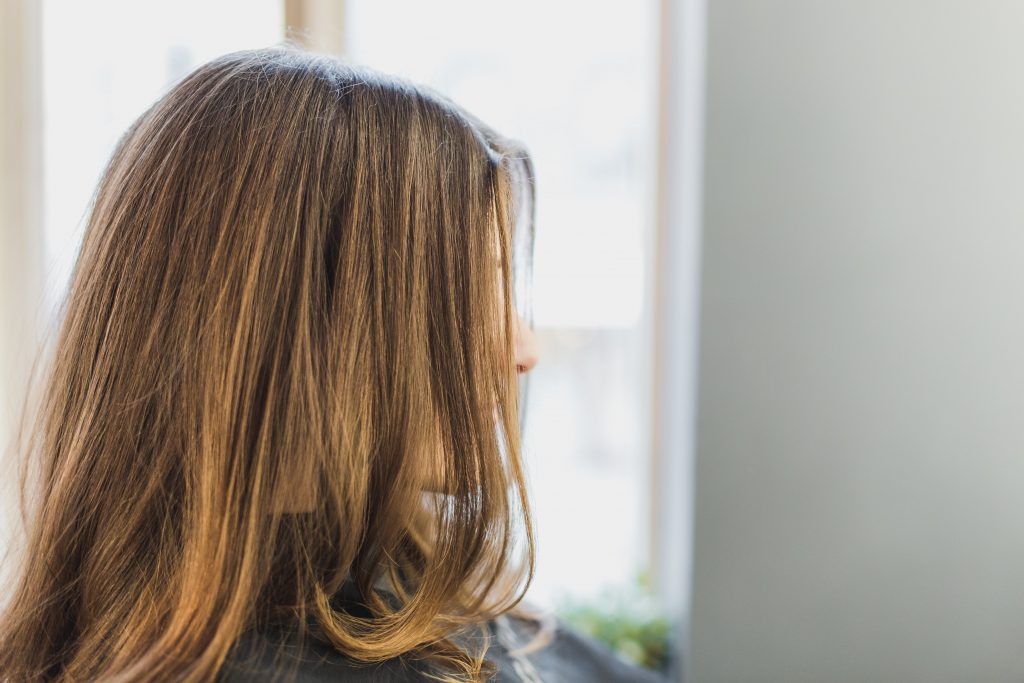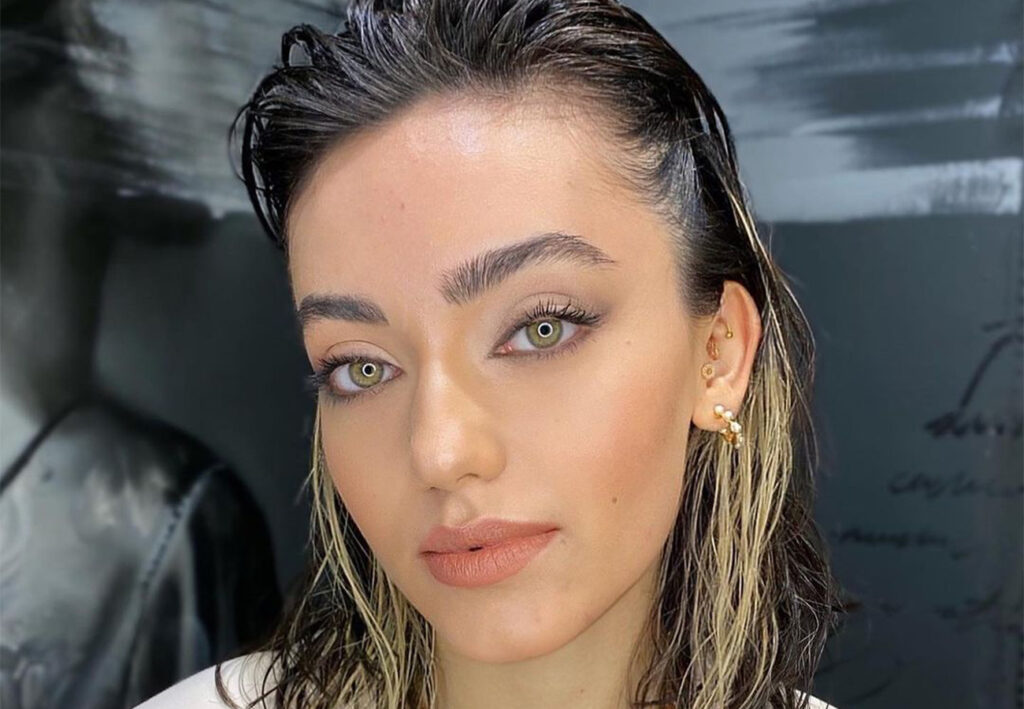What causes hair to become oily?
Your scalp, and as a result, hair, get oily the same reason your skin does— glands residing within your skin produce sebum. This oily, waxy substance (a mix of triglycerides, fatty acids, wax esters, squalene and cholesterol), protects against moisture loss. It does so by acting as a barrier on the scalp’s surface, protecting it from the elements, keeping microbes out and ensuring strands don’t become brittle and snap.
It’s a genius part of the human design, allowing sebum to naturally moisturize hair so it doesn’t get parched. But, in the same way some people have oily, combination and dry skin on their faces, the oil levels on our scalps vary. Hormonal changes, like those experienced during puberty and pregnancy, can affect sebum production for better or worse, as can humidity and pollution, your diet and stress. And just like your face, over-washing hair can strip scalp’s skin of its natural oils, causing it to produce even more oil to compensate for what it’s lost.
Is there a downside to producing too much sebum?
In addition to greasy, lanky strands being uncomfortable, the overproduction of sebum may also affect hair’s growth cycle, which can lead to hair loss. Too much sebum can also lead to the growth of a yeast fungus that can cause a flaky scalp.
How often should you wash your hair if you have an oily scalp?
There’s no blanket answer for this, but you can start by asking yourself two questions: what’s my skin type and what’s my hair texture? A good rule of thumb to follow is the dryer your skin is, the less often your hair will need to be shampooed. Then, the texture of your hair matters because it affects how quickly sebum works its way from your scalp to the ends of your hair. Coarse and curly hair typically take the longest to become oily, while fine, straight hair is the quickest. In the latter hair type, there isn’t enough hair to fully absorb the amount of sebum the scalp produces, causing strands to become oily.
When you do hop in the shower, consider the temperature of your water. Even though steaming hot showers feel great, hot water stimulates sebaceous glands, ramping up oil production. Lukewarm water is a safer bet if oil is a concern of yours.
When washing oily hair, it’s tempting to reach for a deep-cleaning formula with a dense, soapy lather, but that’s not the solution (see: over-stripping, above). Instead, opt for a mild, sulfate-free formula that’s gentle enough for daily use.
Conditioner poses its own challenges, especially when applied at the roots, which can weigh hair down and make it look greasy. Be sure to only apply your conditioner from mid-length to ends where you need the moisture most. Also be meticulous about removing conditioner completely from hair. Try standing under the water stream for at least thirty seconds to ensure that your strands are squeaky clean.





